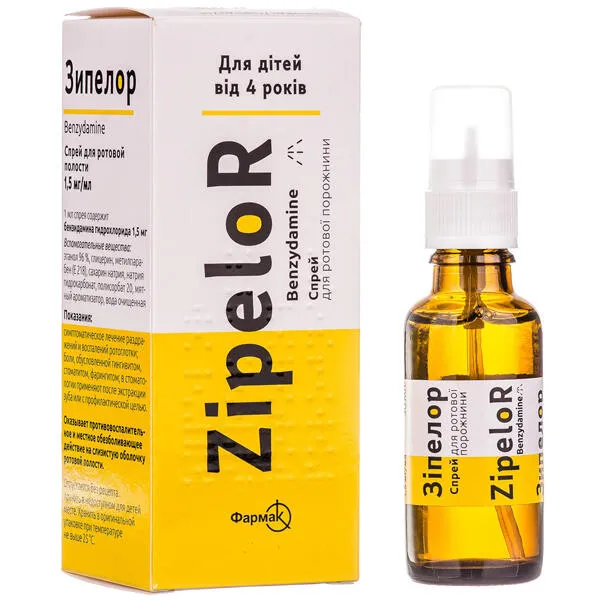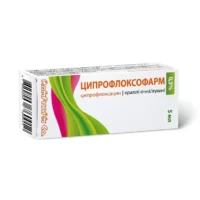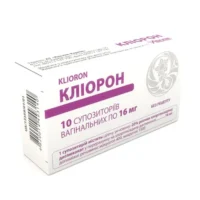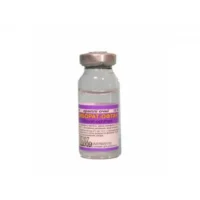Description
Zipelor (Benzidamine Hydrochloride) Spray for Oral Cavity
Ingredients
- Active ingredient: Benzidamine hydrochloride 1.5 mg/ml.
Dosage
- Recommended dosage: Spray 4-8 times in the oral cavity, 1-2 sprays every 1.5 to 3 hours. Do not exceed 4 doses in 24 hours.
Indications
- Zipelor spray is indicated for the relief of pain and inflammation in the oral cavity, including sore throat, mouth ulcers, and post-operative oropharyngeal irritation.
Contraindications
- Do not use Zipelor spray in individuals with a known hypersensitivity to benzidamine hydrochloride or any other ingredients in the formulation.
Directions
- Shake well before use.
- Hold the bottle upright and spray directly into the affected area in the oral cavity.
- Avoid eating or drinking for at least 1 hour after application.
Scientific Evidence
- Benzidamine hydrochloride, the active ingredient in Zipelor spray, has been extensively studied for its anti-inflammatory and analgesic properties. Research published in the Journal of Clinical Pharmacy and Therapeutics demonstrated the efficacy of benzidamine hydrochloride in reducing pain and inflammation in various oral conditions.
Additional Information
- Zipelor spray provides rapid relief from oral pain and discomfort due to its local anesthetic and anti-inflammatory effects. It is well-tolerated and easy to use, making it a convenient option for managing oral mucosal conditions.
- Consult a healthcare professional before using this product, especially if you have any underlying medical conditions or are pregnant or breastfeeding.
Pharmacological Effects: Benzidamine hydrochloride exerts its pharmacological effects by inhibiting the production of inflammatory mediators such as prostaglandins and leukotrienes. This helps reduce pain and swelling in the oral cavity, providing symptomatic relief.
Clinical Trials: Clinical trials have shown that benzidamine hydrochloride is effective in managing oral mucosal conditions, with a rapid onset of action and sustained relief. A study published in the Journal of Oral Pathology & Medicine reported significant improvements in pain scores and inflammation following the use of benzidamine hydrochloride spray.





